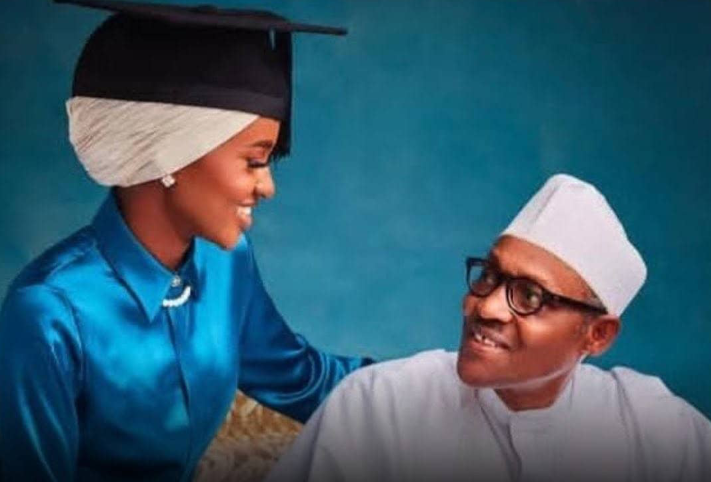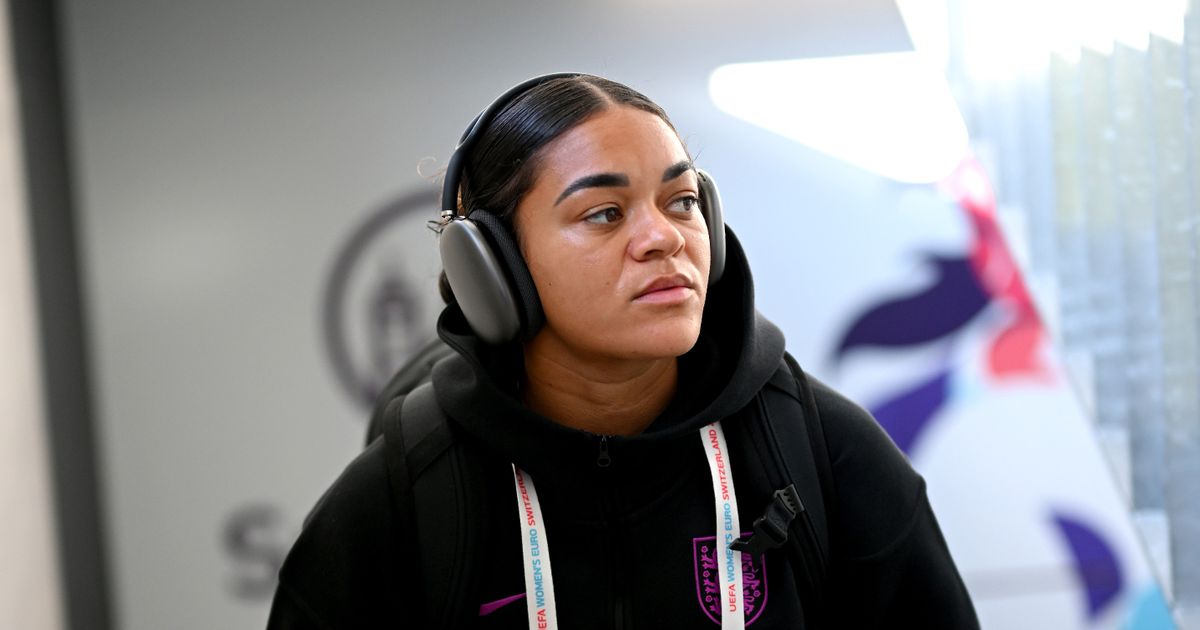
“Thank You for Forgiving My Father”: Hanan Buhari Breaks Silence After Former President’s Death

Amid a nation still reeling from the passing of former President Muhammadu Buhari, his daughter, Hanan Buhari, has spoken publicly for the first time, offering an emotional message of gratitude to Nigerians — especially those who found it in their hearts to forgive her father in death, despite the polarizing legacy he left behind.
The former president reportedly passed away on Sunday, July 13, 2025, at a private clinic in London after a long, undisclosed illness that had kept him in and out of intensive care over the past few months. His health had been a topic of speculation for years, with numerous hospital trips abroad, often shrouded in secrecy. Just days before his death, Buhari had been discharged from intensive care, leading many to believe he was on the road to recovery — a hope that was ultimately short-lived.
Buhari was buried two days later, on Tuesday, in his hometown of Daura, Katsina State, where a solemn crowd of dignitaries, military officials, close family, and a few selected guests gathered to pay their last respects to the man who led Nigeria through two presidential terms marked by both fierce criticism and unwavering loyalty.
Since news of his death broke, the country has been divided. Social media platforms, particularly X (formerly Twitter) and Facebook, have been flooded with both heartfelt tributes from loyal supporters and scathing criticism from detractors who saw Buhari’s presidency as a period of economic hardship, insecurity, and democratic backsliding. Hashtags such as #RestInPeaceBuhari, #JusticeForTheMasses, and #LegacyOfBuhari have all trended at various points over the past few days, reflecting the emotional complexity of his passing.
Amidst this whirlwind of reactions, Hanan Buhari, known for her quiet demeanor and artistic pursuits rather than political commentary, stepped into the spotlight with a rare and heartfelt interview with BBC Hausa. In the emotional conversation, she shared personal memories of her father, focusing less on the public man and more on the private figure who shaped her life.
“What I will miss most about him is his sense of humour,” she said, her voice tinged with sorrow. “I look up to him as a part of me. I want to thank everyone who forgave my late father.”
It was a statement that quickly drew attention — and admiration — across social platforms. Many praised her for her maturity and grace in acknowledging the nation’s complex emotions about her father. In a political culture where legacy is fiercely defended by family members regardless of public sentiment, Hanan’s words stood out for their vulnerability and sincerity.
Her acknowledgement of the mixed reactions to her father’s passing wasn’t defensive. Instead, she offered gratitude — to both supporters and critics. “On behalf of our family, we are grateful. We have nothing to say to them except thank God,” she said.
Hanan, who pursued photography and art studies in the UK and often stayed out of the media spotlight during her father’s presidency, became a symbol of a different, more personal side of the Buhari family. Her statement was more spiritual than political. “He disciplined me to study, pray, and do things that made us happy. That is what I can say. But since Allah has decreed it, Alhamdulillah, I had the chance to be with him and read the Qur’an to him.”
As the youngest daughter of the former president, Hanan’s message carried a unique poignancy. While some former first children have used the public stage to defend their parents’ legacies or even enter the political arena themselves, Hanan instead chose to speak as a grieving daughter, not a political heiress.
Across Nigeria, the reactions to her message have been swift. Some Nigerians who were once critical of Buhari’s rule found themselves moved by her humanity. Others felt her statement was a dignified gesture in a moment of intense national reflection.
Buhari’s tenure as president was marked by major national events — the recession of 2016, the #EndSARS protests of 2020, the COVID-19 pandemic, repeated insurgencies in the North, and widespread concerns about the weakening of democratic institutions. To his critics, Buhari’s government represented a failure to deliver on promises of security and economic revival. To his loyalists, however, he remained a symbol of discipline, integrity, and national identity — a man who, in their eyes, tried to steer the country away from corruption and chaos.
Now, in death, Buhari's image is being reshaped not just by public debate, but by the voices of those closest to him. Hanan’s simple but heartfelt appeal — “Thank you for forgiving my father” — has injected a note of humanity into what could have been a purely political moment.
It is not yet clear how history will remember Muhammadu Buhari. What is clear, however, is that his passing has opened a fresh chapter in the country’s political and emotional narrative. For many, Hanan’s words serve as a gentle reminder that behind every national figure lies a family dealing with very human emotions — grief, memory, love, and the hope for understanding.
As the nation continues to dissect Buhari’s legacy, Hanan’s quiet voice has offered a softer lens through which to view a man often defined by rigidity and controversy. In a country where political figures are often mythologized or demonized, her message reminds Nigerians of something deeper — the power of forgiveness, the humanity behind leadership, and the pain of losing a father, no matter how public or powerful he might have been.
Whether Hanan’s words will have any lasting impact on the broader discourse around her father’s administration remains to be seen. But in a time when bitterness and division often dominate national conversations, her heartfelt gratitude may very well mark a moment of healing — however brief — in the ongoing story of Nigeria.


